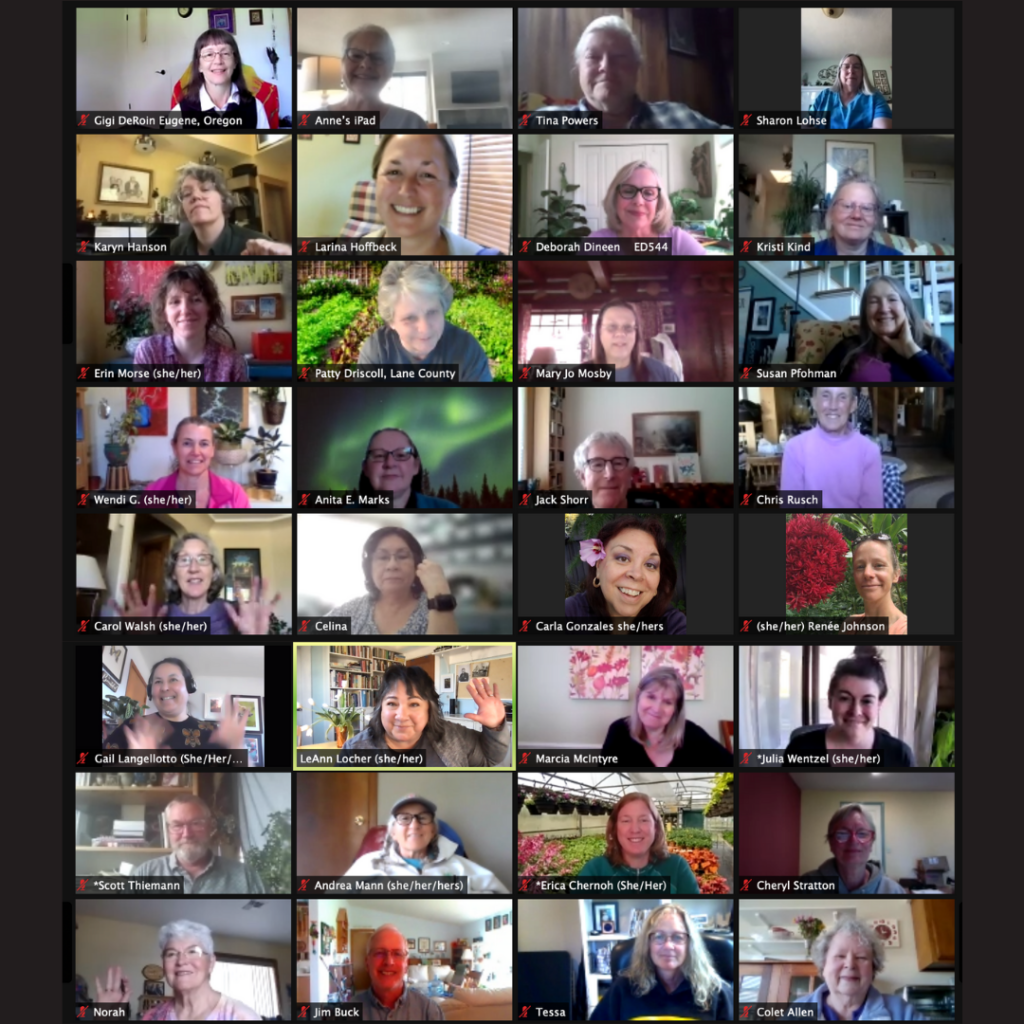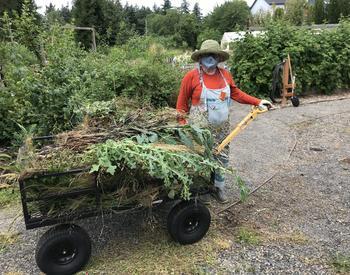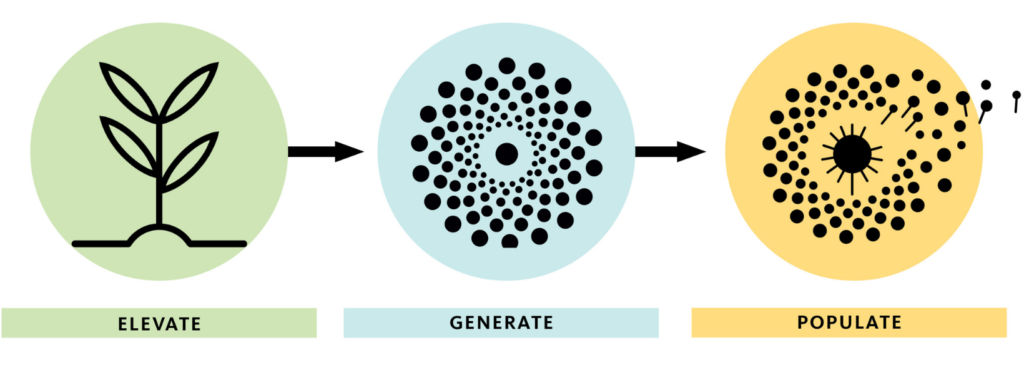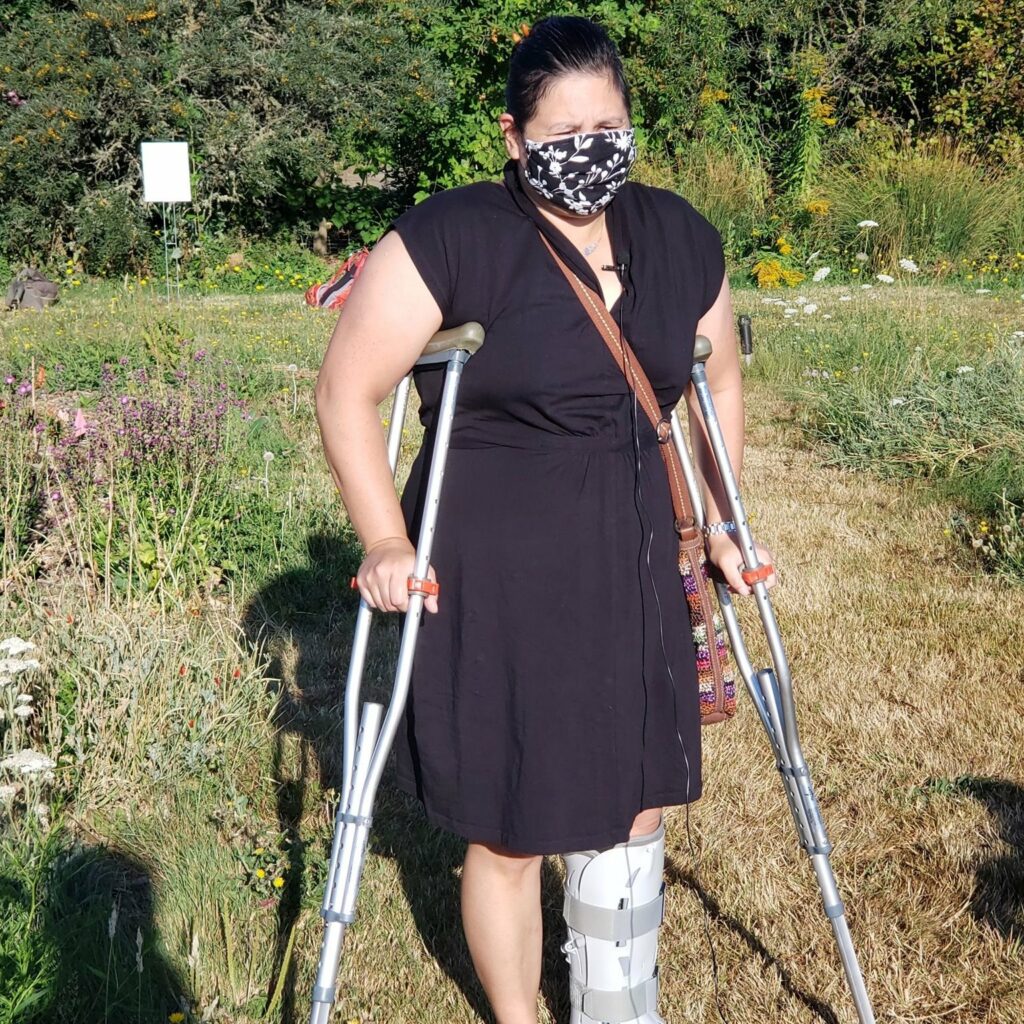“Will OSU Extension be hosting trainings for new Master Gardener volunteers in 2022?”
Yes. Counties with Master Gardener Programs are planning for the 2022 Master Gardener trainings. Typically, applications for new Master Gardener trainees are available each fall, and the classes begin in January or February of the following year. Specific dates may vary across counties. Check with your local Master Gardener program for details.
“I took the Master Gardener training class in 2020, but COVID disrupted my ability to complete my certification. Can I still be certified?”
Yes! We realize that COVID has disrupted personal lives and much of our in-person programming. Many counties were not able to hold face-to-face volunteer activities, and many face-to-face volunteer activities are still on hold. Most counties have lowered the number of required volunteer service hours to 40 hours, to help the class of 2020 Master Gardener trainees complete their service hour requirement. Your sum total volunteer service hours accrued during 2020, 2021, and into 2022 will count towards meeting the service hour requirement and Master Gardener certification. Be alert to your local county program updates as volunteer activities are able to resume. We appreciate your patience and continued participation in the Master Gardener training program.
Keep note of your volunteer service activities. Volunteer service hours must be reported to your local Master Gardener Extension program for them to count towards Master Gardener certification. Most OSU Extension Master Gardener Programs (except for the Portland Metro counties) use the online Volunteer Reporting System for reporting and tracking volunteer hours. The Portland Metro Area Counties of Clackamas, Washington, and Multnomah use a different system, and will provide a link to report your hours in the fall.
In 2021, you may have also participated in continuing education programs for your Master Gardener work. These may have included webinars (such as the Growing Oregon Gardeners: Level Up Series) or online classes (such as the Elevated Skills training for Master Gardener volunteers). Or, you may have participated in other continuing education classes, through your local Master Gardener Program. We hope these programs have enriched and supported you in your new role as community garden educators.
Please check with your local Master Gardener coordinator if you have questions about reporting service hours or continuing education units.
“I took the Master Gardener training in 2020 and completed both my coursework and my volunteer service hour requirement. Can I be certified as a Master Gardener volunteer?”
Yes! Individuals who completed their coursework and volunteer service hours will receive (or may have already received) their Master Gardener badge and certificate of completion. Completing your Master Gardener training and certification is a HUGE accomplishment, and particularly so during the challenges of 2020 and 2021. Congratulations, and thank you! We look forward to celebrating your accomplishment.
“I am a current Master Gardener volunteer but have not been able to recertify during COVID. What do I need to do?”
Master Gardeners who were certified for the 2020 calendar year will maintain their certification in 2021 and into 2022. We understand that COVID has disrupted our lives in so many ways, including the ability to complete annual recertification requirements (a minimum of 20 hours of volunteer service and a minimum 10 hours of continuing education units per year).
Even if you have not been able to complete annual recertification requirements, we encourage you to report any volunteer service hours and/or continuing education units that you have been able to complete.
“Do I need to report my volunteer service and continuing education hours?”
Yes. Reporting your Master Gardener Program service hours and continuing education is very important. It helps us to know that you are still interested in engaging with the Master Gardener Program, and pursuing your Master Gardener certification. As we open Master Gardener certification opportunities to new trainees in 2022, your reporting helps us to ensure that you will be first in line for volunteer service opportunities. Reporting also helps us to communicate the impact and value of the program to local, university, and statewide decision makers, and to make the case for funding in counties with active Master Gardener volunteers.
Please check with your local Master Gardener coordinator if you have questions about reporting service hours or continuing education units.
“I heard that OSU will require vaccines for faculty, staff, and students. What about volunteers? Do I need to be vaccinated and/or report that I have been vaccinated?”
OSU Extension Service encourages all community members to get vaccinated. The more people are vaccinated the better the outlook for getting back to community volunteer activities. For more information please see: https://extension.oregonstate.edu/community-vitality/coronavirus.
At this time there is not an expectation to require volunteers to be vaccinated. However, administrators are expected to have more discussion about this over the next few weeks. If new details are added to the OSU vaccination requirement, that affect Master Gardener volunteers, we will be sure to communicate them as soon as we know more.
“Given the CDC’s latest guidance for individuals who have been fully vaccinated, do I have to wear a face covering or mask while participating in face to face Master Gardener volunteer activities?”
In short, and at this time, the answer is ‘yes’. The information, below, is excerpted from a recent email from OSU’s Coronavirus Response Coordinator, Dan Larsen:
Oregon State University must continue to adhere to current Oregon Health Authority (OHA) and Oregon Occupational Safety and Health Division (OSHA) guidelines and rules requiring the use of face coverings.
Dan Larson email to OSU Community Members on May 14, 2021.
You likely know that the Center for Disease Control (CDC) announced Thursday that fully vaccinated individuals no longer need to wear a face covering or physically distance, except where required by state or other jurisdictions’ laws, rules and regulations. Gov. Kate Brown followed the CDC’s announcement Thursday sharing that businesses in Oregon could stop requiring face coverings and social distancing for those who are fully vaccinated.
We do share your excitement in the updates provided by Governor Brown and the CDC, and we are eager to support those who are fully vaccinated in being able to engage in activities with fewer requirements and restrictions. For now, we must wait, as OSU’s Safety & Success policies must be in alignment with existing Oregon Health Authority’s (OHA) guidance, as well as OHA and HECC guidance for higher education, and OHSA workplace rules.
Additionally, once we receive updated guidance on how OSU can extend the benefits of reduced face covering requirements and restrictions, we will thoughtfully evaluate our current policies and enforcement measures, and will communicate any changes and updates with employees, students and stakeholders. We do anticipate that some environments within the university may continue to require use of face coverings through the end of spring term.












